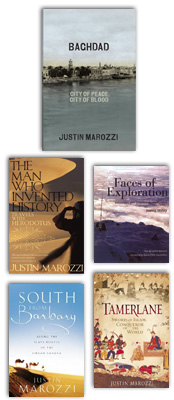Land of Marvels: A Novel by Barry Unsworth (Hutchinson, £18.99)
JOHN Somerville is an English archaeologist working in the deserts of Mesopotamia on the brink of the First World War. After years of disappointment in the subterranean world of history, he is pinning his hopes on this latest excavation.
His funds are running out and time isn’t on his side. He is hoping for fame but is braced for disaster. This is his last chance.
The German-funded Baghdad railway linking Constantinople to the Persian Gulf is getting inexorably nearer. Its route looks likely to smash through the ancient mound of mud and rock that holds the key to Somerville’s future.
Another man keeping a beady eye on proceedings is Jehar, an unscrupulous Bedouin in the archaeologist’s pay. He, too, hopes to make his fortune, with which he will be able to pay the elusive bride-price of 100 pounds demanded by the uncle of Ninanna, a beautiful Circassian girl.
Somerville’s wife Edith, deeply conventional yet unfulfilled, wonders about the future of her marriage in the stultifying heat of the desert.
Into the fray steps Alex Elliott, a breezy American geologist-cum-corporate sleuth posing as an archaeologist, ostensibly working for British interests on a top-secret mission from the cynical financier Lord Rampling while concealing his own darker motives. In Edith’s eyes, at least, Elliott brings with him a refreshing whiff of glamour and excitement.
After a midnight, moonlit ride out into the desert, she succumbs to the romance of the setting and the enigmatic stranger, and the two embark on a fleeting affair.
While Britain, France, Germany and the United States plot to carve up the disintegrating Ottoman Empire, Somerville’s dig starts to take on greater significance.
The hitherto unremarkable mound starts to reveal itself as something infinitely more history-making. It looks like an ancient Assyrian palace containing a wholly unexpected royal tomb. As the archaeological prize grows by the day, promising to launch Somerville into international stardom, the railway continues to approach and the Englishman unaware of his wife’s night-time wanderings with the American impostor feels his own impending doom.
Outside Mesopotamia questions begin to be asked about Elliott. Suspicions as to his true intentions are raised. Is he working for the Germans? For Lord Rampling, the American’s reports on oil in the desert represent the prospect of a personal financial windfall and a patriotic triumph for Britain. They cannot be jeopardised for one moment. The American has to be assassinated.
Tensions mount in the desert as spies and assassins join the cast of soldiers and archaeologists, and the story hurtles on towards its fiery denouement.
Unsworth’s novel abounds with parallels between pre-war Mesopotamia and present-day Iraq. In Rampling’s words, “What was it Churchill had said…? Mastery itself is the prize. Prophetic words. He who owns the oil will own the world, he will rule the sea and the land, he will rule his fellow men.
The day will come when oil will be more desired, more sought after than gold.” Who said history never repeats itself ?

